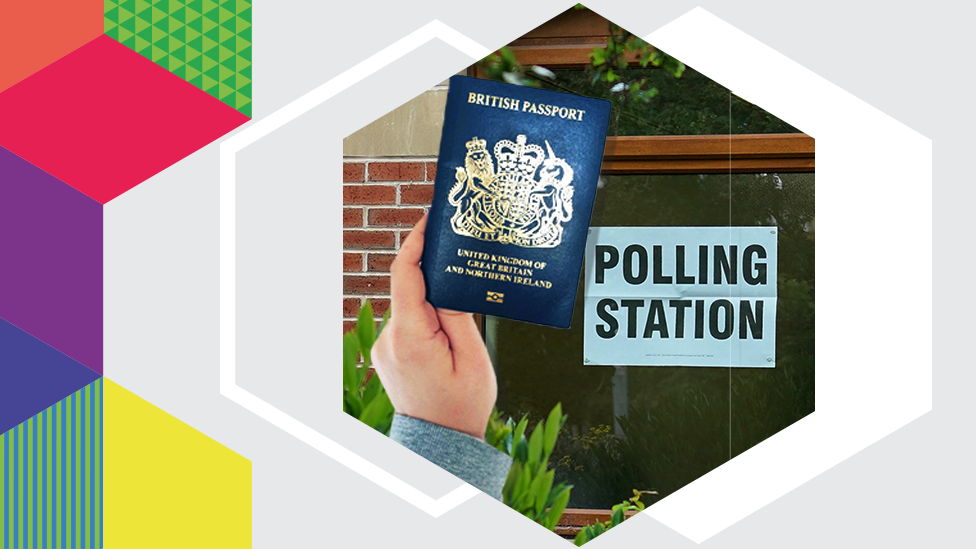What photo ID do you need to vote in UK elections?

Voters who don’t have an accepted form of photo ID to show at polling stations have until 17:00 BST this afternoon to apply for an alternative.
People in England will need to show photo ID before being allowed to vote in local elections on Thursday 4 May.
Those who don’t have an acceptable document can apply for a voter authority certificate.
The government says the new rules will help prevent voter fraud but critics claim the changes will make it harder for some to vote.
What are the new voter ID rules?
Voters will need to show photo ID to get their ballot paper in polling stations at local elections, police and crime commissioner elections, and parliamentary by-elections.
From October the requirements will also apply to any future general elections.
You don’t need to show ID if voting by post.
What documents can you use as photo ID?
There include:
- passports
- driving licences
- Older or Disabled Person’s bus passes
- Oyster 60+ cards
You can use out-of-date ID as long as you look the same.
Why do I need ID to vote?
The government said the measure would stop votes being stolen, although this is quite unusual in the UK.
Since 2018, there have been 1,386 cases of alleged electoral fraud reported to the police, according to the Electoral Commission. These led to nine convictions and six police cautions.
The commission said in the past five years there had been “no evidence of large-scale electoral fraud”, although some Conservative MPs claim the statistics underplay the issue.
What if I don’t have an acceptable form of ID?
You could exchange a paper driving licence for a photocard or apply for a photocard travel pass if you’re aged 60 or over, disabled, or registered blind or partially-sighted.
But if you don’t have the right photo ID, or the picture doesn’t look like you anymore, you can apply for a free voter ID document, known as a Voter Authority Certificate.
You need to provide your name, date of birth, address, and a recent passport-style digital photograph.
You will also be asked for your National Insurance number but if you don’t know it, or don’t have one, a birth certificate, bank statement or utility bill will do.
How do I apply for a voter ID document?
You must have already applied to vote in person. The deadline for doing so in England in time for the May local elections was 17 April.
If you have registered, you can apply for a voter ID document online or by post. before 17:00 BST on Tuesday.
Why has voter ID been criticised?
The plan was put forward by the Conservative-led government to “protect the integrity of the ballot box”.
Although most people have some form of accepted photo ID, an estimated two million people don’t, and opposition MPs believe the changes will make it more difficult for them to vote.
The Electoral Commission warned the new rules risk creating a barrier to those who vote anonymously and people who are disabled, older, experiencing homelessness, trans or non-binary, or from Gypsy, Roma or Traveller backgrounds.
The Electoral Reform Society has suggested younger voters might be disproportionately affected – highlighting that older people can use bus passes and 60+ Oyster cards as ID but young people can’t use their railcards or student Oyster cards.
Government figures show 80,821 people had applied for a Voter Authority Certificate by 24 April.
The Local Government Association (LGA) – which represents local authorities – also says the practical difficulties faced by councils enforcing ID checks on polling day “should not be underestimated”.
- Voter ID could overwhelm staff, councils warn
Has voter ID been tried before?
In England, it was trialled at the 2018 and 2019 local elections.
In both years, participating councils required voters to bring a form of identification.
The Electoral Commission said many of the people who were initially refused a ballot for not having ID did return with it later, and the number of those that didn’t was fairly small.
Photo ID has been mandatory in Northern Ireland since 2003. A free electoral ID card was created.
Most European countries require all residents to have national ID in any case which is used in various situations, including voting.
In the US, 35 states require some form of ID to vote but only about half of those specify it must be photo ID.

- Is there an election in my area?
- When are the elections and who’s being elected?
- Dogs, selfies… What can you do in a polling station?

Related Topics
- Electoral Commission
- England local elections 2023
- Local government
Published at Tue, 25 Apr 2023 00:15:38 +0000
